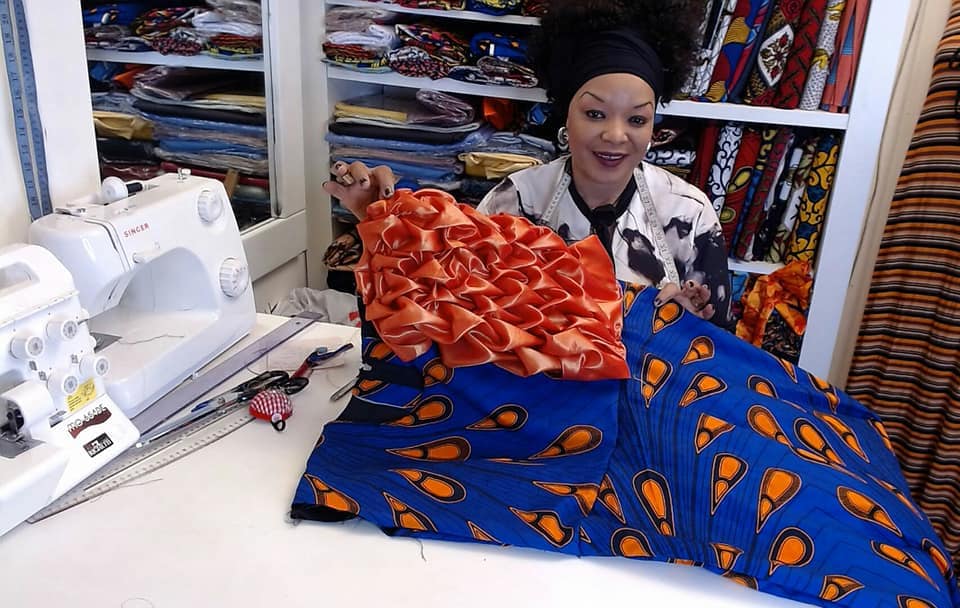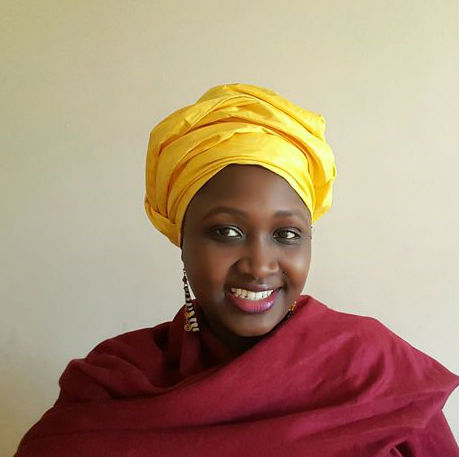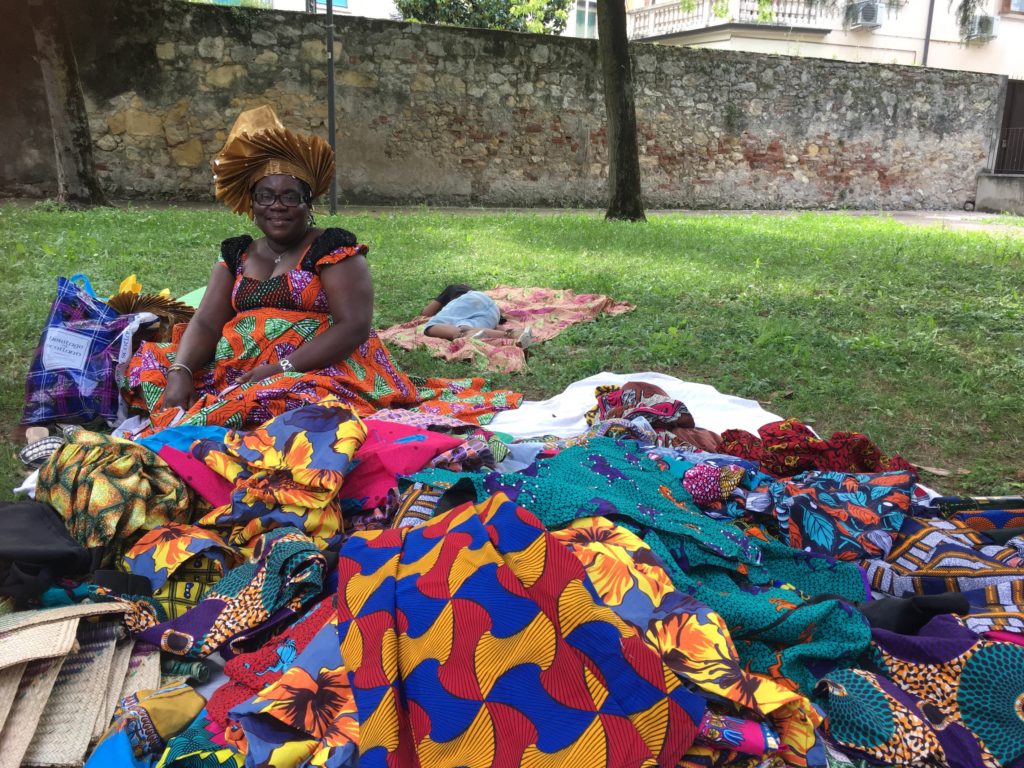Denize Galião, a Brazilian filmmaker based in Germany tells in “Saudade” the feeling of living “physically present, with your mind in somewhere else”.
by Juliana da Penha
In the Portuguese language, “Saudade” means “a grateful memory of a missing person, a past moment, or something that someone is deprived of”.
Although each experience is unique, all people who move to another country have something in common: you left people you love and you miss them. These feelings are explored by Denize Galião in Saudade (2019) winner of IDFA (The International Documentary Film Festival Amsterdam) Award for Best Student Documentary.
In this film Denize created an intimacy environment, revealing her worries of living abroad when she had elderly parents in her home country. The situation becomes complex when her parents got health issues. “I was with a lot of emotions because of my family and I decided to try to do something about it,” she said.
Denize left Brazil 21 years ago to join her older sister who was living in Germany when she was 18 years old “My sister left when I was 11 years old. We were really attached, and I always wanted to join her. When she came to visit us, I always listened to her stories. My aim was to finish school and leave. Even not knowing what was waiting for me”, explained her.
Cinema is her passion since she was a child “When I was a teenager my sister gave me a camera as a gift and I was filming, playing with my parents.” However, it was a hidden dream. She explained that when she was a teenager, in Brazil was almost impossible for a poor black woman to dreaming about to become a filmmaker. “In Germany education is free, so this also helped me to continue dreaming.” After many years trying to overcome her fears and insecurities, this filmmaker based in Munique produced different films and won some awards, as “In the shadows of Copacabana” winner of the Dok. Fest Munique 2014 as “Best Newcomer-Documentary. “Thank God everything was fine but with a lot of sacrifices,” she explained.
“The social system in Brazil help to slaughter people”.

Interview with Denize Galião
In the film “Saudade” when you are speaking about how you got passionate about Cinema you say: “In Brazil, you learn early on to kill your dreams before they even take shape”. Could you speak more about it?
Denize Galião: When I was a child in Brazil there weren’t examples of people in different professions with my skin tone and my social class that I could say I will do it too. Today children have more examples. In my time, there were fewer. As you know, the television has a great influence in Brazil and there was no reference. When I thought to become a film director, I didn’t have the courage to even continue thinking about it. It was unthinkable for a poor black woman to make films. It was really difficult. How I will survive? Who will give me the job? Where should I learn? Who will trust me? It was a hidden dream. I thought it would be my hobby, my game but I didn’t have the courage to carry on.
But in Germany, you manage to do it. How was it?
Denize: I manage to do many things although is a difficult environment for everyone. Step by step I learned to speak the language. I had a boyfriend who was a documentarist and he showed me the editing room at Berlin University. I never saw a School Cinema before. I enter there, looked at the students and thought: “This is amazing!” Every year I looked at the requirements to enter the Cinema course at all Germany Universities. In Germany the education is free, so this also helped me to continue dreaming. When education is free is possible to dream. In my time, a Cinema course in Brazil was something impossible; or you go to a private university that is expensive or you go to a public university that is really competitive. I always studied at public schools and didn’t have conditions to pay a preparation course to enter a public university. I never dreamed in Brazil. I was quiet in my place.
“When I thought to become a film director, I didn’t have the courage to even continue thinking about it. It was unthinkable for a poor black woman to make films. It was really difficult.”
How was the process to start Cinema University in Germany?
Denize: Firstly, I had to overcome fear. Every year, I looked at the requirements and thought “I don’t have the courage. It’s too much for me”. It took 6 years to develop the confidence to apply for the first time.
How the confidence to apply arrived?
Denize: There is a maximum age of 30 years old to apply. When I got 26, I thought if I don’t apply now, I will be 30 soon and I will regret not being able to apply. I was not confident yet, but I was scared of in future, the regret of not being able to try. I was always scared.
You were scared of what?
Denize: I was scared of not being able to enter, not being capable. I did never show anything to anybody. Step by step I started. I thought that, before I try to enter the university, I needed to have a technical profession because Cinema studies are heavy, the projects take a long time. If you don’t have a job that pays you relatively well, especially in Munique that is an expensive town, you can’t work and study at the same time. It’s really complicated. I had the idea to start one editing technical training before trying to apply to the university. I knew I would have to financially sustain myself and do all on my own. I knew that in order to try to enter at the Cinema University I need to have another profession to maintains myself. Germany people have the support of parents and government and I didn’t. I had to have a relatively good job in order to work less. I did 2 years and a half training at a TV in northern Germany and got an Editing qualification.
Did you manage to find a job after this training?
Denize: Yes. I worked there for 2 years and then I started to think to apply seriously to Cinema University. My confidence started to increase. It was not only the question of doing it but how to do it. I tried twice to enter the University; at the first attempt, I didn’t pass. Then I waited more 2 years to have more experience and I tried and passed.
The film “Saudade” is your academic conclusion work?
Denize: Yes. In fact, I was working on other things and meanwhile, my mom and dad became sick. It took a long time to finish our work and the university started to press us to finish. I started to have these issues with my family, the university system changed, and they put pressure on us to finish or send an old project. I tried to do both. I was with a lot of emotions because of my family and I decided to try to do something about it. I didn’t have lots of ambitions, it was something as a diary, something personal that I wanted to do to finish for the University. My father always supported me saying “You need to do other films”, even when he was really sick. He gave me a lot of strength.
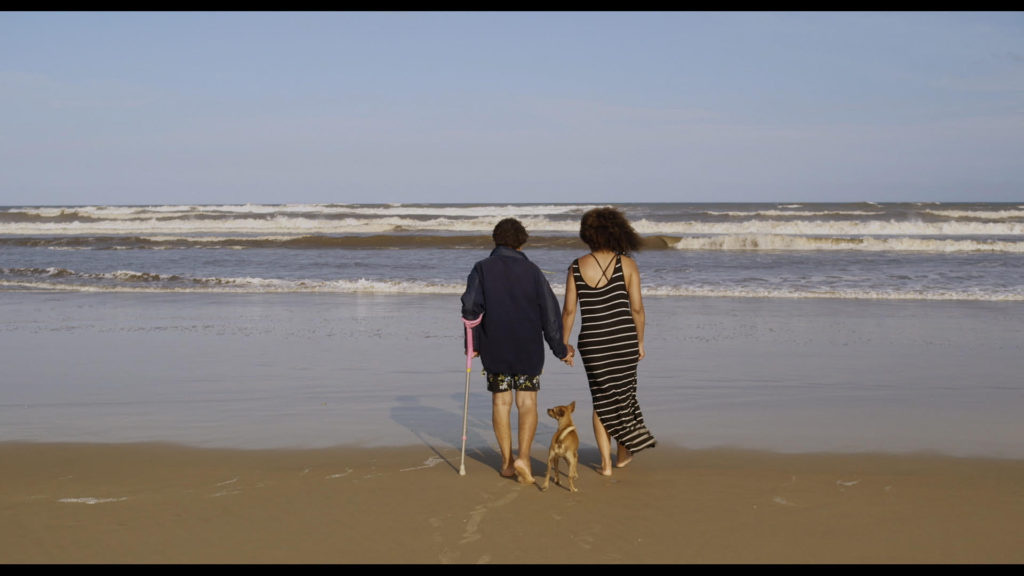
What was the biggest challenge in the production of this film?
Denize: It was overcome the pain of Saudade. In the end, I manage to work better because I had an editor with me. But in the beginning, when it was the time to put the head on the place to try to decide the story, although I had a lot of ideas and many things written, to organise the ideas was really difficult. I edit a little, lied under the table and started to cry.
Is possible to see a lot of emotions involved in this film.
Denize: Yes. I worked for one hour and didn’t manage to continue. I lied under the table and stayed there, crying. Then I stopped, take a tea, and continue. It was like that.
During the film, you had many interesting conversations with your sisters about living abroad. You asked your sisters if they would do it again. One of them said yes and another said no. What about you?
Denize: I think I would do it. Since I was a child I always wanted to come. My father always seated with me to tell the wonderful things he manages to see while visiting my sister. He always encourages me to come. He didn’t have an idea about the things I would be able to do here but he had the feeling that I should leave. I think is this I want to say, that Brazil doesn’t stimulate people to fight to change the country and stay there. There was a time when people were more motivated and now it is worse again.
“I think is this I want to say, that Brazil don’t stimulate people to fight to change there and stay there. There was a time when people where more motivated and now, it is worst again.”
One of your father’s advice in the film is “Forget Saudade and carry on”. Did you manage to do it?
Denize: I think so. Although forget is too strong. There are moments, when a little desperation come and I listen to his voice, “forget it and carry on”.
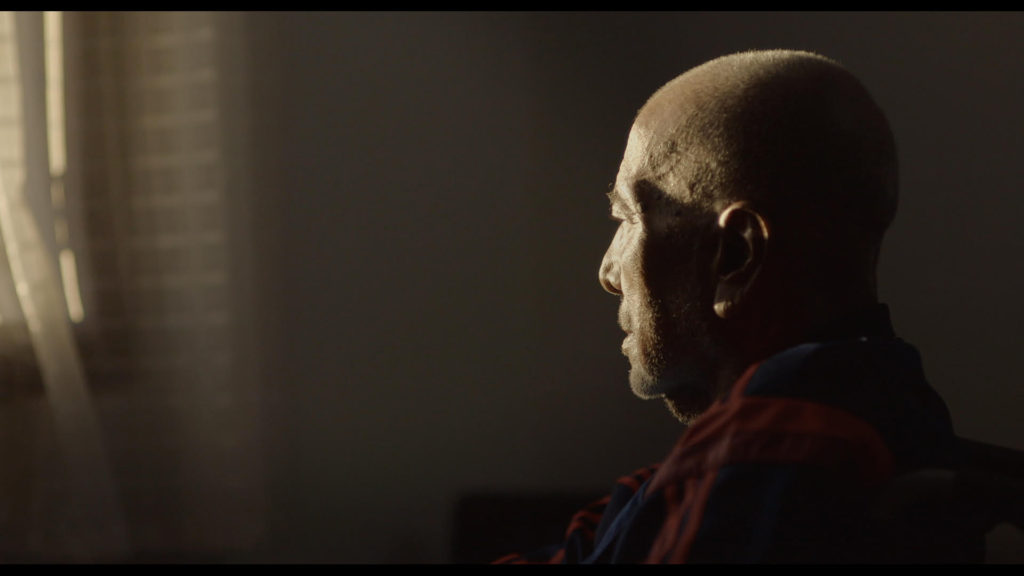
Your mum said: “You have Saudade only when you love”. Migrant people need to leave their loved ones and carry on. How is to live between two worlds, with your heart divided?
Denize: It’s really complicated. I think you need to try to live the here and now. Try as much as you can not to think. Is like now I will enjoy this, now I am feeling good and I try to enjoy it and don’t think that much in the future. My father gave me this advice. When I was there, I tried to enjoy the moment with them. It’s difficult. It’s not easy. Sometimes desperation comes, you need a tea to calm down. Thanks to God I have my brothers and sisters here and this help.
What do you miss more from Brazil?
Denize: I miss a lot the beach, the holidays with my parents. It was something really simple. They had a small land in a really remote place. In the time they got this land it was only dunes there. All the other neighbours went to more popular beaches and we went to this small beach with nothing, with little electricity. I miss a lot this time because at the time I thought the other beaches were better, were “chic” but now I realize it was the best time of my life. I thought other people were at the best beach but now when I go there, I realize that is the opposite, that we had a great life there.
“I think you need to try to live the here and now.”
In some of your movies, for example, “In the Shadow of Copacabana,” you discuss Brazilian issues. This is a concern in your productions?
Denize: In my first movie I was in Brazil working in German television there and I should do something there. “In the shadows of Copacabana” I did because I was really interested in that moment before Brazil start with the big wave of manifestations in 2013. I remember that nobody was speaking about politics and I found this guy on the Internet and I became fascinated and felt that was something in the air. I wanted to do a film about him. I think the choices are related to my personal phase at that moment.
What are your future projects?
Denize: I am researching and reading a lot. I did not decide yet if I will do something. I really would like to try to do fiction one day. But it needs to be something that comes out of my heart. I have many ideas but didn’t have the courage yet. Maybe it will take more time. I take a long time to have the courage to do something.
“I really would like to try to do some fiction one day. But it needs to be something that comes out from my heart.”
Why?
Denize: I think is because in a way I am exigent, I want to do things well. And also, I am scared as well. Scared of something… I think this is something that comes from the past. There is always that question “Can I make it?” There is a small thing in me that I need to overcome every time I will do a film.
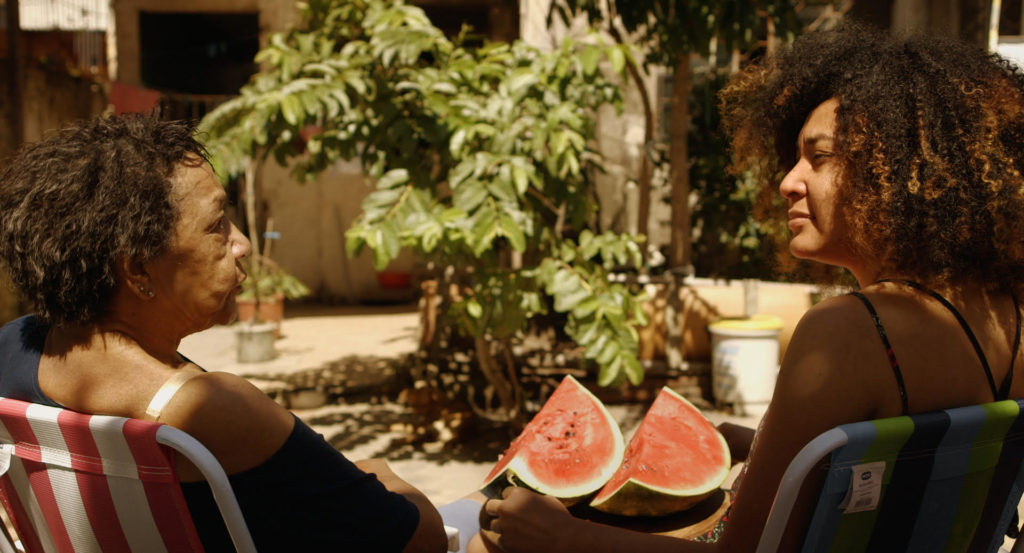
What are the biggest challenges for a migrant woman in Germany?
Denize: The biggest challenge is to face stereotypes. I work in the media and I perceive that when there is a woman speaking about migration or standing out if you are not coming for certain countries that they want to listen you don’t have enough voice. They want a commonplace and there is also the cliché connected with Brazil. They wait for the same things about Brazil. It is something really subtle but is possible to perceive. The question connected with racism exist as in everywhere, but I believe in Brazil is angrier, people are more aggressive, they underestimate you more. I am not saying where is best or worst, is not like that. But racism here is more naïve, is something stupid, like “Let me touch your hair?”. Here they have this stupid curiosity, something childish. I think because the social system here is so strong, there is no way to racism be so strong to be able to shatter you as much as it happens in Brazil. In Brazil the social system is weak. The question is that here you have access to education, health and this is the key. You are treated equally, and thus reduce the problem by 70%. The social system in Brazil helps to slaughter the people.
“The biggest challenge is to face the stereotypes.”
Watch the trailer of Saudade here: https://www.idfa.nl/en/film/de42da48-35aa-45ed-87f2-e61a29cc36d2/saudade

